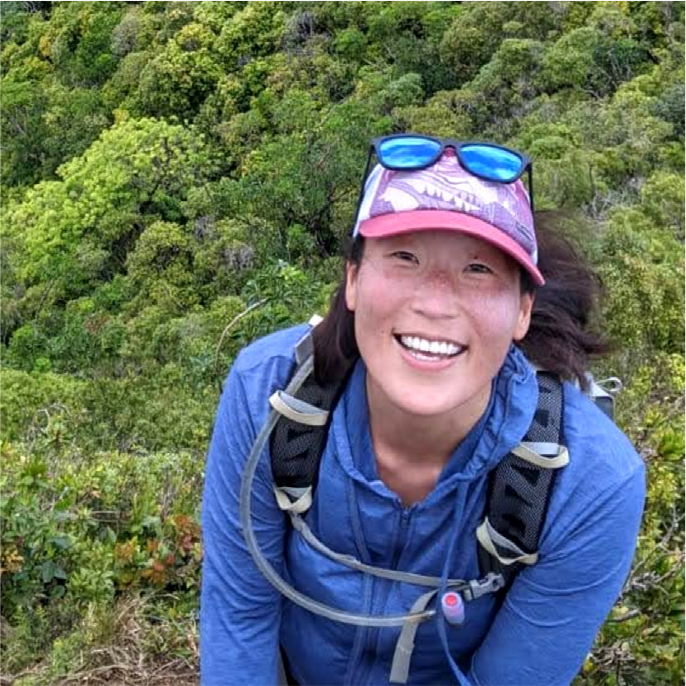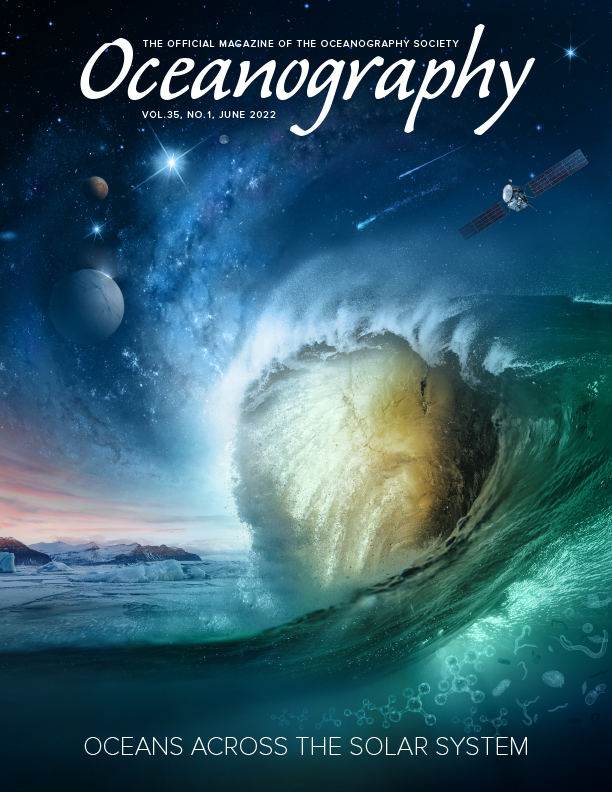Full Text
 |
TYE L. KINDINGER, Research Marine Biologist, Ecosystem Sciences Division, NOAA Pacific Islands Fisheries Science Center
Degree: When, where, what, and what in?
I earned my bachelor’s degree in zoology at the University of New Hampshire in 2007. After teaching marine science in outdoor education programs for a few years, I returned to academia and completed my PhD in zoology (now integrative biology) with a minor in statistics at Oregon State University in 2016. My dissertation focused on the direct and indirect effects of an invasive marine predator on native coral reef communities in the Atlantic.
Did you stay in academia at all, and if so, for how long?
After completing my PhD, I became a member of Kristy Kroeker’s lab at the University of California, Santa Cruz, for a two-year postdoctoral position. I had developed a foundation in marine community ecology during my PhD, but I knew I wanted my research to address the effects of global climate change on ocean ecosystems. The Kroeker lab not only allowed me to immerse myself in the field of global change ecology but also provided the opportunity to gain several new skills. I was exposed to water-sampling techniques and oceanographic sensors used to monitor water conditions. I learned how to conduct a meta-analysis, during which I also became familiar with the variety of experimental work that measured the effects of ocean acidification (OA) and warming on organisms and species interactions. I then went on to learn how to design and build one of those experimental systems, manipulating water conditions in mesocosms to test the effects of OA and warming on predator-prey interactions in kelp forest communities.
How did you go about searching for a job outside of the university setting?
I constantly monitored relevant listservs, such as NOAA’s Coral-List (https://coral.aoml.noaa.gov/mailman/listinfo/coral-list). I also checked for job postings on websites of institutions or organizations of interest, such as research scientist positions at aquariums, museums, and research field stations.
Is this the only job (post-academia) that you’ve had? If not, what else did you do?
Yes, I feel very fortunate that the timing of my job at NOAA aligned nicely with the end of my postdoctoral position.
What is your current job? What path did you take to get there?
I am a research marine biologist at NOAA’s Pacific Islands Fisheries Science Center (PIFSC) in Honolulu, Hawai’i. I lead the fish component of NOAA’s National Coral Reef Monitoring Program (NCRMP) in the Pacific, as well as work on a wide variety of projects to provide the science needed to inform management and conservation actions in nearshore ecosystems across the US Pacific Islands. I initially joined PIFSC as a supervisory coral reef ecosystem researcher, which was a contractor position through the Joint Institute of Marine and Atmospheric Research (JIMAR). This position allowed me to find my bearings within NOAA, PIFSC, and my research division, as well as gain formal management experience and begin forming collaborative relationships with a variety of federal, jurisdictional, state, academic, and nonprofit partners. This experience made me a strong candidate when the NOAA position that I currently hold became available, as there was considerable overlap in the roles and duties between the two positions.
What did your oceanographic education (or academic career) give you that is useful in your current job?
My background in community ecology, invasive species, and global ocean change allows me to view nearshore systems from an ecosystem-wide perspective and communicate effectively across our specialized teams to develop ways to address management questions by integrating the variety of oceanographic and biological data sets collected for NCRMP. My training in statistics has perhaps been the most beneficial to me throughout my career; being familiar with advanced statistical techniques benefits my own research and also enables me to serve as a statistical consultant for my colleagues. Throughout my career, I have also become increasingly comfortable with coding in the statistical software, R, which is essential in my current position in order to work with the magnitude of data from the NCRMP long-term time series. Lastly, I am able to participate in NOAA cruises to implement surveys for NCRMP because of the extensive fieldwork that I previously conducted in remote locations, which fostered a solution-oriented attitude and the ability to be an effective leader and team member in field environments.
Is there any course or other training you would have liked to have had as part of your graduate education to meet the demands of the job market?
I would have liked more training in computer coding languages and data management practices and tools, such as GitHub. I also wish I had gained more experience in using ArcGIS and working with satellite data.
Is the job satisfying? What aspects of the job do you like best/least?
I am very satisfied in my current position. A large perk of my job is participating in the annual NOAA NCRMP cruises, because prior to moving to Hawai’i, I had never visited the tropical Pacific. I am privileged to be able to dive in the US Pacific Islands, including in remote areas that few people are able to access. I also enjoy the multiple hats I get to wear as a leader of research teams and projects both in the field and in office settings, and as a collaborator continuously building and maintaining a variety of internal and external partnerships, while still having the time and space to be a scientist and diver. In addition, I find the research funding process within NOAA and the reduced expectation to produce publications in peer-reviewed journals in order to advance my career eliminates some of the pressures of academia that could be a personal struggle for me. The aspect I like least about my job is the additional bureaucracy of a government agency, which results in more requirements and approvals in order for work to progress.
Do you have any recommendations for new grads looking for jobs?
Regardless of which career stage you are in, I recommend that if you have an interest in a certain type of job, do your best to find a way to try it out in advance. It is always beneficial to learn more about what the job is really like and whether it truly is a good match for you. Try to build direct connections with agencies or organizations that interest you. Ask scientists from agencies to join your graduate committee. Develop a research proposal and apply for funding together, or make the project one of your dissertation chapters or postdoctoral papers. Apply for internships, fellowships, or postdoctoral positions hosted by agencies. It will benefit you to show initiative and enthusiasm by contacting agencies directly and asking about any potential ways to get involved with their work. Otherwise, I recommend always keeping an eye out for job openings of interest, even if the timing is not ideal. You never know when your dream job may become available, and interviewing with organizations you are interested in will only allow hiring managers to become familiar with you and your work.

